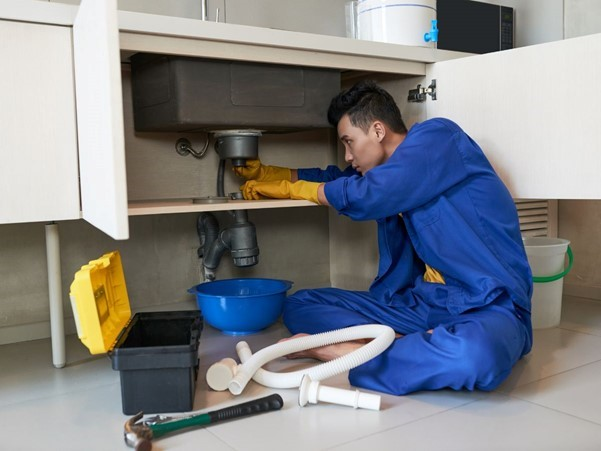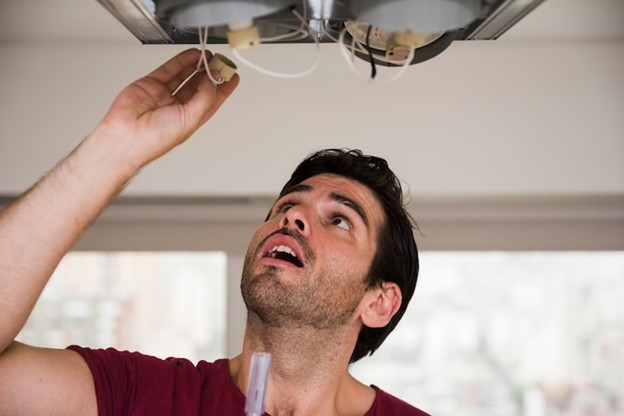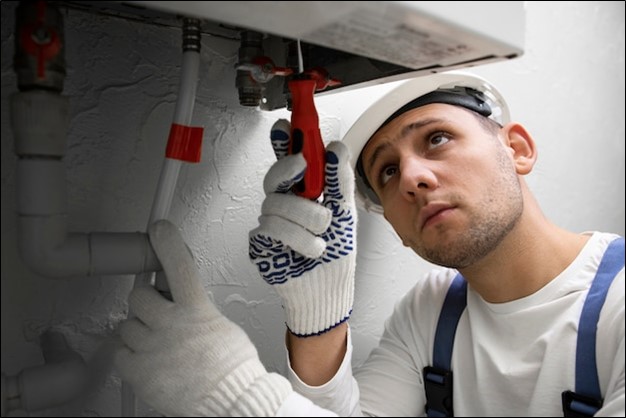How Long Does a Hot Water Heater Last?
Key Takeaways:
- Tank water heaters typically last 8–12 years, while tankless models can last 15–20 years or more with proper care.
- Water quality, usage, maintenance, installation, and temperature settings directly affect your heater’s lifespan.
- Watch for age, performance issues, leaks, or rust—these are signs it may be time to replace your unit.
- Extend your water heater’s life with annual flushing, anode rod checks, and professional inspections.
Have you ever stepped into a cold shower and wondered, “How long does a hot water heater last?” Knowing how long your water heater will work can save you from surprise cold showers and costly repairs. In this guide, you’ll learn about the lifespan of different types of water heaters, what affects how long they last, signs it’s time to replace them, and how to make your water heater last longer.
Different Water Heater Types and How Long They Last
There are several types of water heaters, and each one lasts for a different amount of time. Let’s look at the most common types:
Tank Water Heaters (Most Common Type)
Tank water heaters store hot water in a big tank. These usually last 8 to 12 years. Some tanks hold 40 gallons and can last up to 15 years, while bigger 50-gallon tanks might last as long as 20 years if well cared for. But over time, sediment (tiny bits of minerals) builds up inside the tank, which can cause it to wear out faster.
Tankless Water Heaters
Tankless water heaters don’t store water. Instead, they heat water only when you need it. Because they don’t have a tank, they last longer — usually 15 to 20 years or more. They cost more upfront but can save money in the long run because they use less energy.
Other Types (Brief Overview)
- Heat pump water heaters: Use electricity to move heat from the air to water. They last about as long as tank heaters.
- Solar water heaters: Use energy from the sun and can last 20 years or more.
- Electric vs. gas water heaters: Both types have similar lifespans, but gas heaters may need more maintenance.
5 Key Factors That Determine How Long Your Water Heater Lasts
Not all water heaters last the same amount of time. Here are five important things that affect how long yours will work:
1. Water Quality (Biggest Factor)
Hard water has lots of minerals like calcium and magnesium. These minerals can build up inside your water heater, causing damage. Soft water has fewer minerals and is easier on your heater. You can test your water hardness with simple kits from a hardware store.
2. How Much You Use It
If your family uses a lot of hot water every day, your water heater works harder and may wear out faster. Big families or homes with many appliances using hot water will see shorter lifespans.
3. Maintenance and Care
Taking care of your water heater can make it last longer. Flushing the tank once a year to remove sediment and replacing the anode rod (a part that protects the tank) every 3 to 5 years helps a lot.
4. Installation Quality
If your water heater is installed by a professional and sized correctly for your home, it will last longer. Poor installation or placing the heater in a bad spot can cause problems.
5. Water Temperature Settings
Setting your water heater to very high temperatures can shorten its life. The recommended temperature is about 120°F (49°C). This also saves energy and prevents burns.
Clear Signs It’s Time to Replace Your Water Heater
How do you know when your water heater is about to give out? Watch for these signs:
Age-Related Signs
- If your water heater is over 10 years old, it might be time to think about replacing it.
- You can find the age by looking for the serial number on the tank or checking the manufacturer’s date.
Performance Problems
- Water temperature changes a lot or takes too long to get hot.
- Strange noises like rumbling or popping sounds.
- Water looks rusty or discolored.
Physical Damage Signs
- Leaks around the base of the tank.
- Rust or cracks on the outside of the tank.
- Broken or damaged parts.
If you see any of these signs, it’s a good idea to call a professional to check your water heater.
Simple Ways to Extend Your Water Heater’s Life
Want your water heater to last as long as possible? Try these tips:
Annual Maintenance Tasks
- Flush the tank once a year to remove sediment.
- Test the pressure relief valve to make sure it works.
- For gas heaters, check gas lines for leaks.
Anode Rod Care
- The anode rod protects your tank from rust.
- Check it every few years and replace it if it’s worn out.
- A worn anode rod can cause your tank to rust faster.
Professional Services
- Have a plumber inspect your water heater once a year.
- Regular check-ups can catch problems early and save money.
Should You Repair or Replace Your Water Heater?
Sometimes your water heater breaks down, and you have to decide: fix it or get a new one?
When Repair Makes Sense
- Your water heater is less than 8 years old.
- The problem is small and cheap to fix.
- You need a quick fix while planning for a new heater.
When Replacement Is Better
- Your heater is old and needs expensive repairs.
- New heaters are more energy-efficient and can save money.
- You might get tax credits or rebates for upgrading.
How to Plan for Your Next Water Heater
Expected Replacement Timeline
- Start planning to replace your water heater around 8-10 years old.
- Save money over time so you’re ready.
- Have a backup plan in case it breaks suddenly.
Choosing Your Next Unit
- Pick the right size for your home.
- Look for energy-efficient models to save money.
- Consider new technology like tankless or solar heaters.
Conclusion
Most tank water heaters last about 8 to 12 years, while tankless models can last 15 to 20 years or more. The lifespan depends on water quality, usage, maintenance, installation, and temperature settings. Regular care and watching for warning signs can help you avoid surprise breakdowns. When it’s time, replacing your water heater with an efficient model can save money and keep your showers warm.
If you’re unsure about your water heater’s condition, call a professional plumber to inspect it. Taking care of your water heater today means warm water tomorrow!
If you want help with your water heater or need advice on replacement, don’t hesitate to reach out to a local expert. They can guide you to the best choice for your home and budget.




